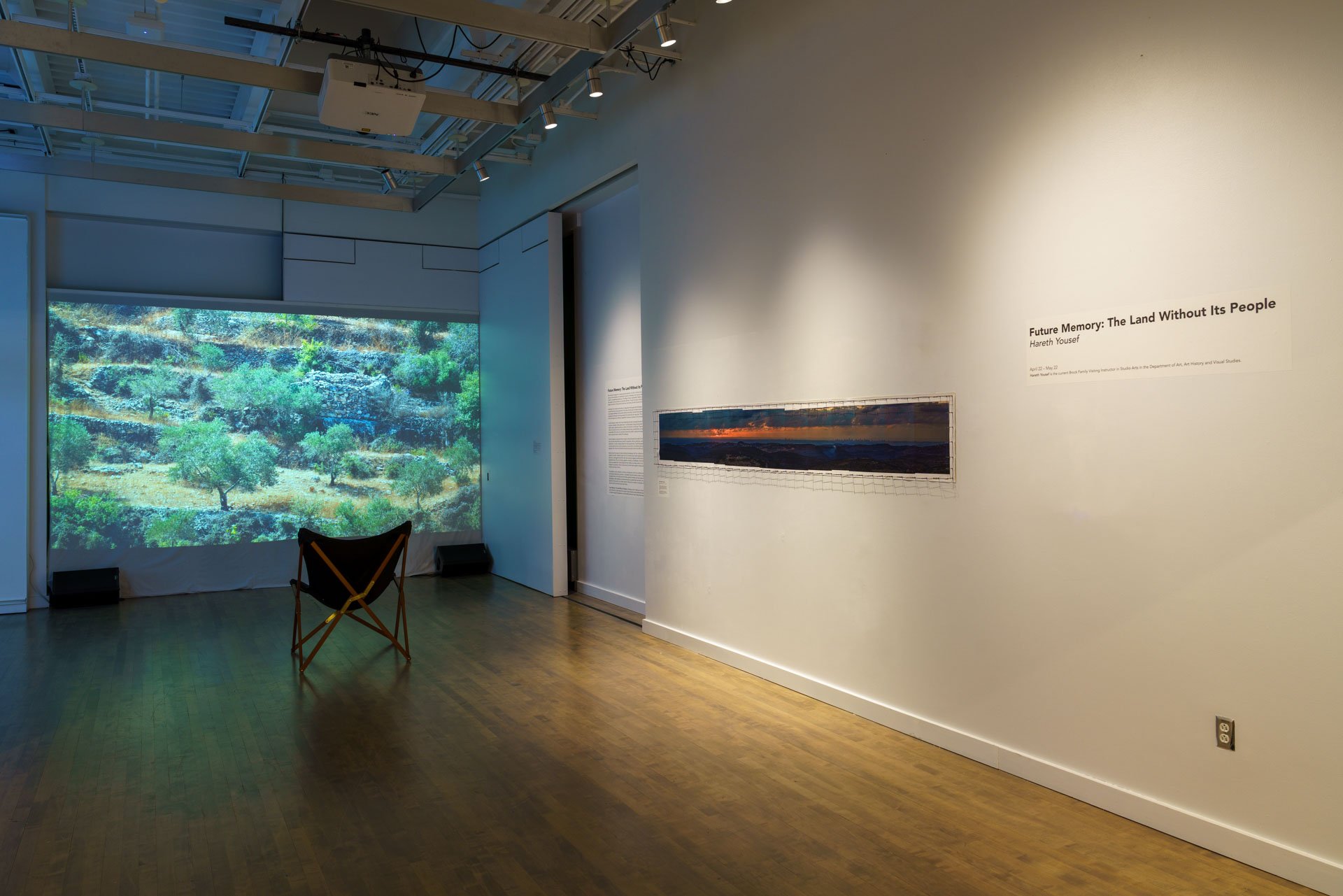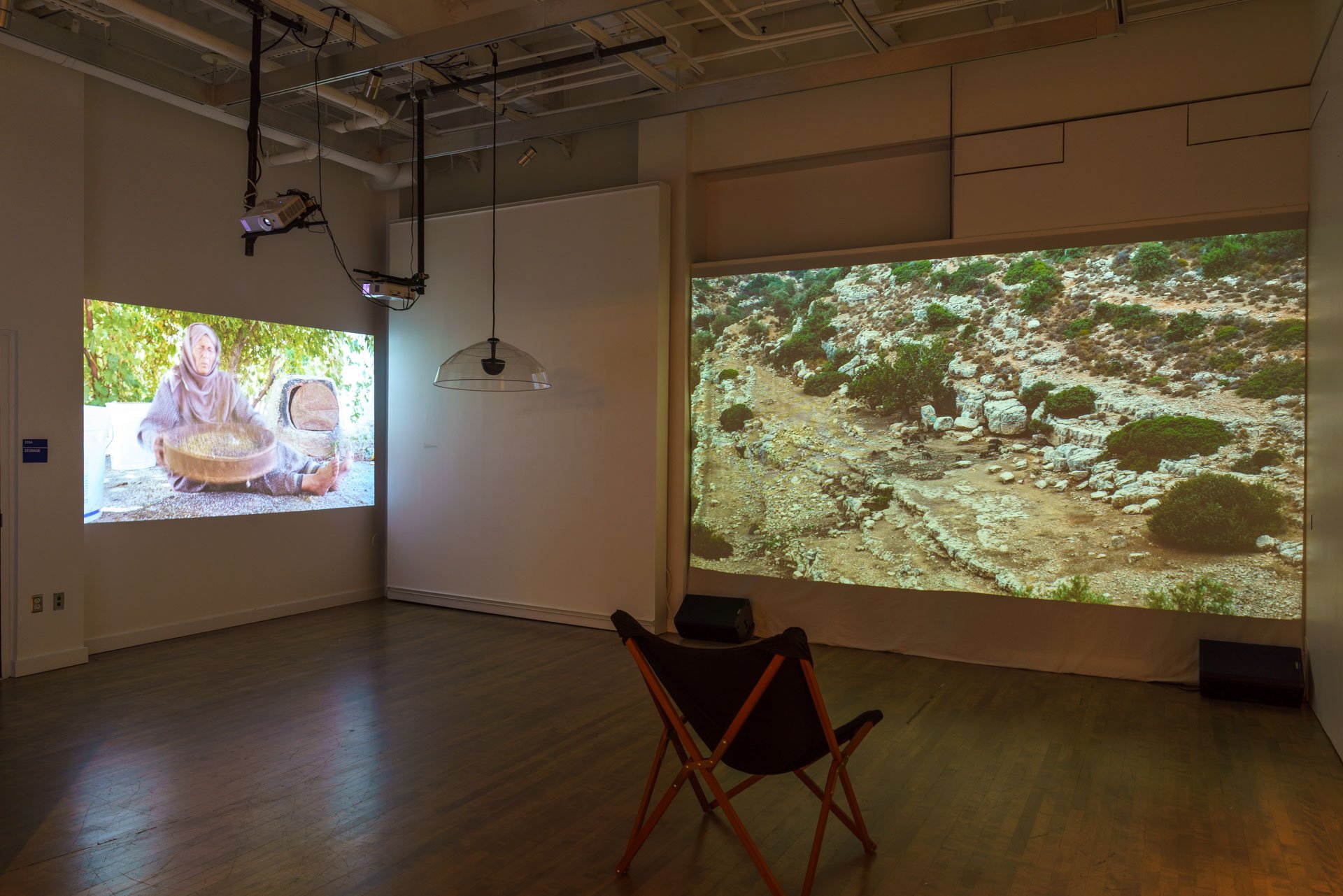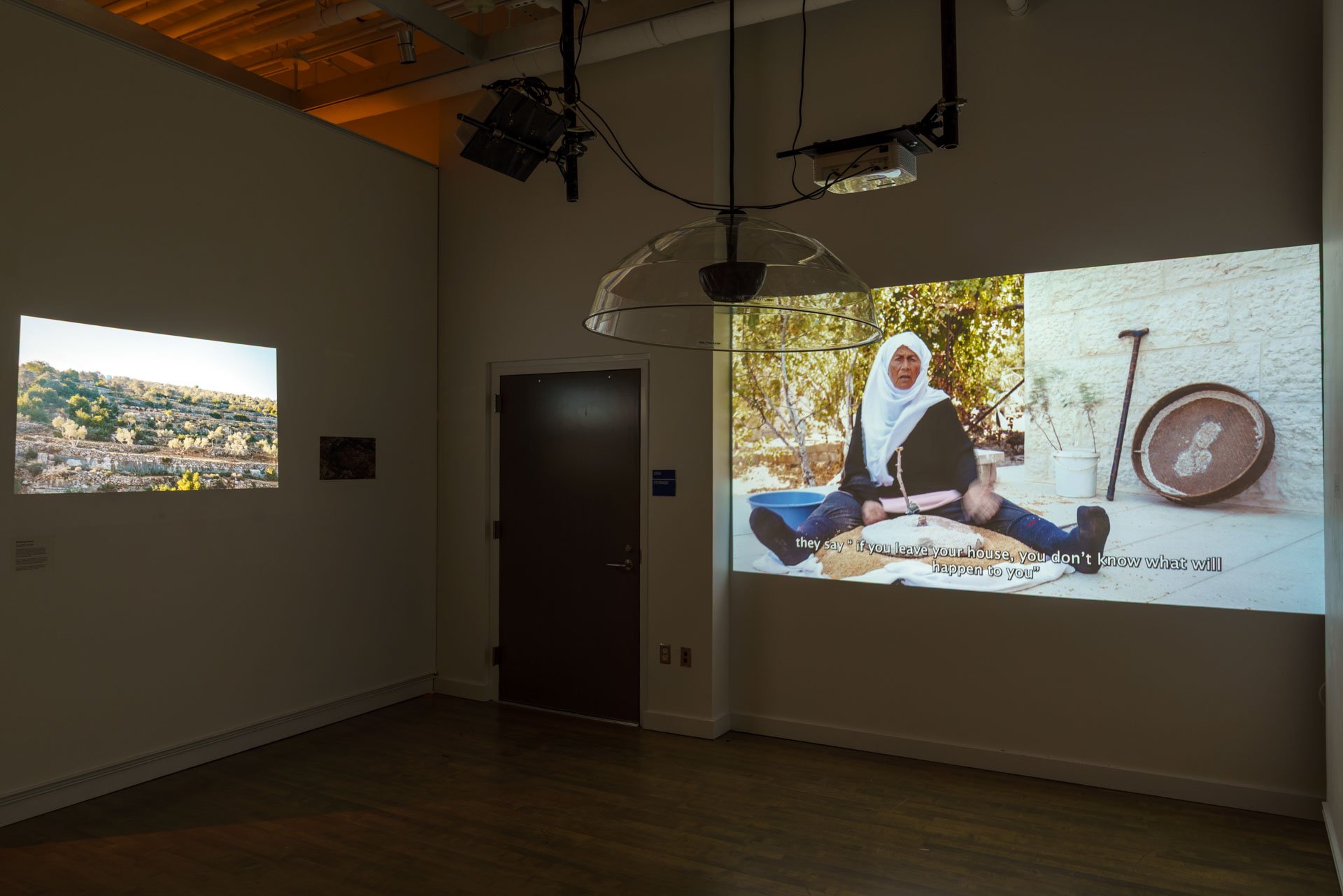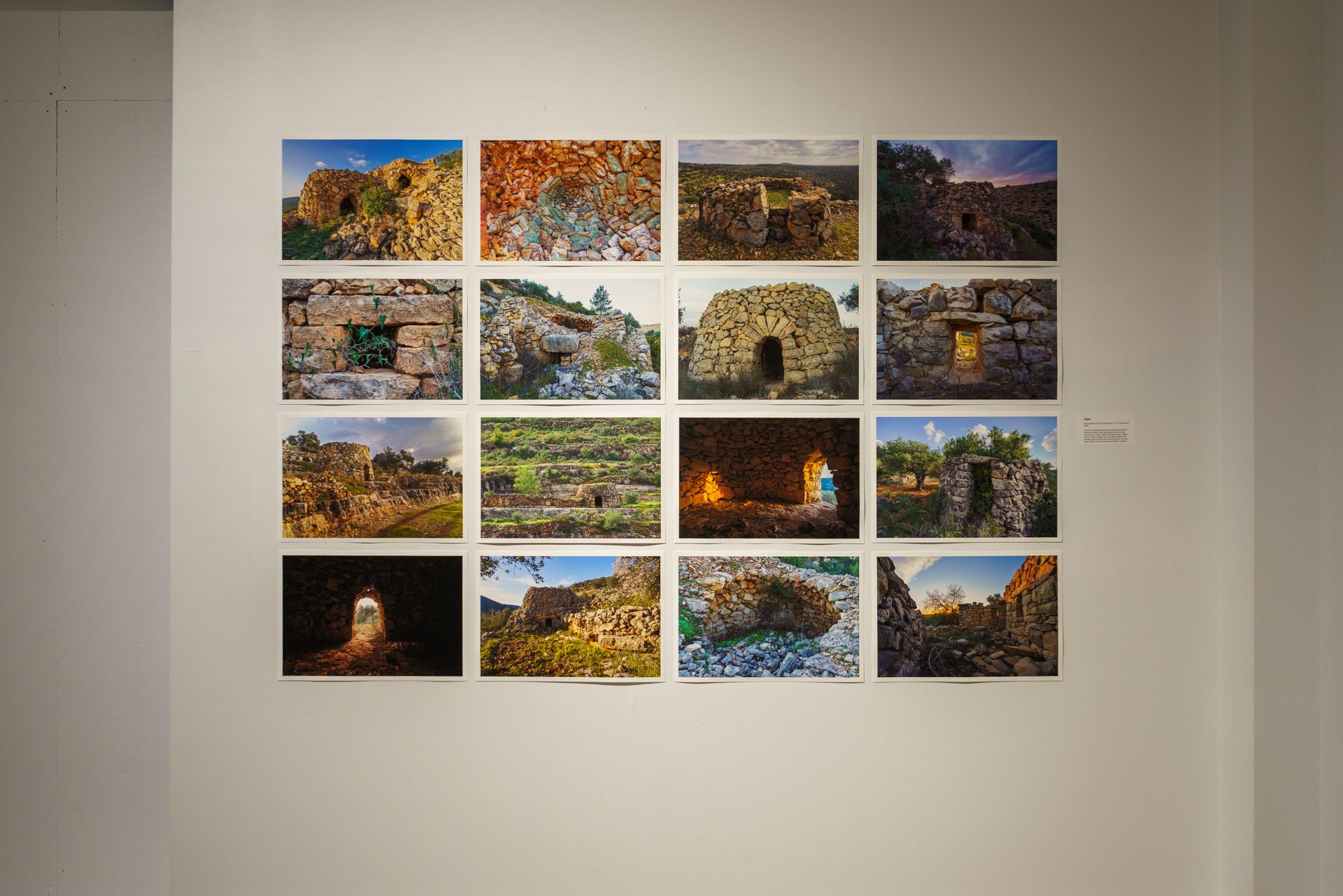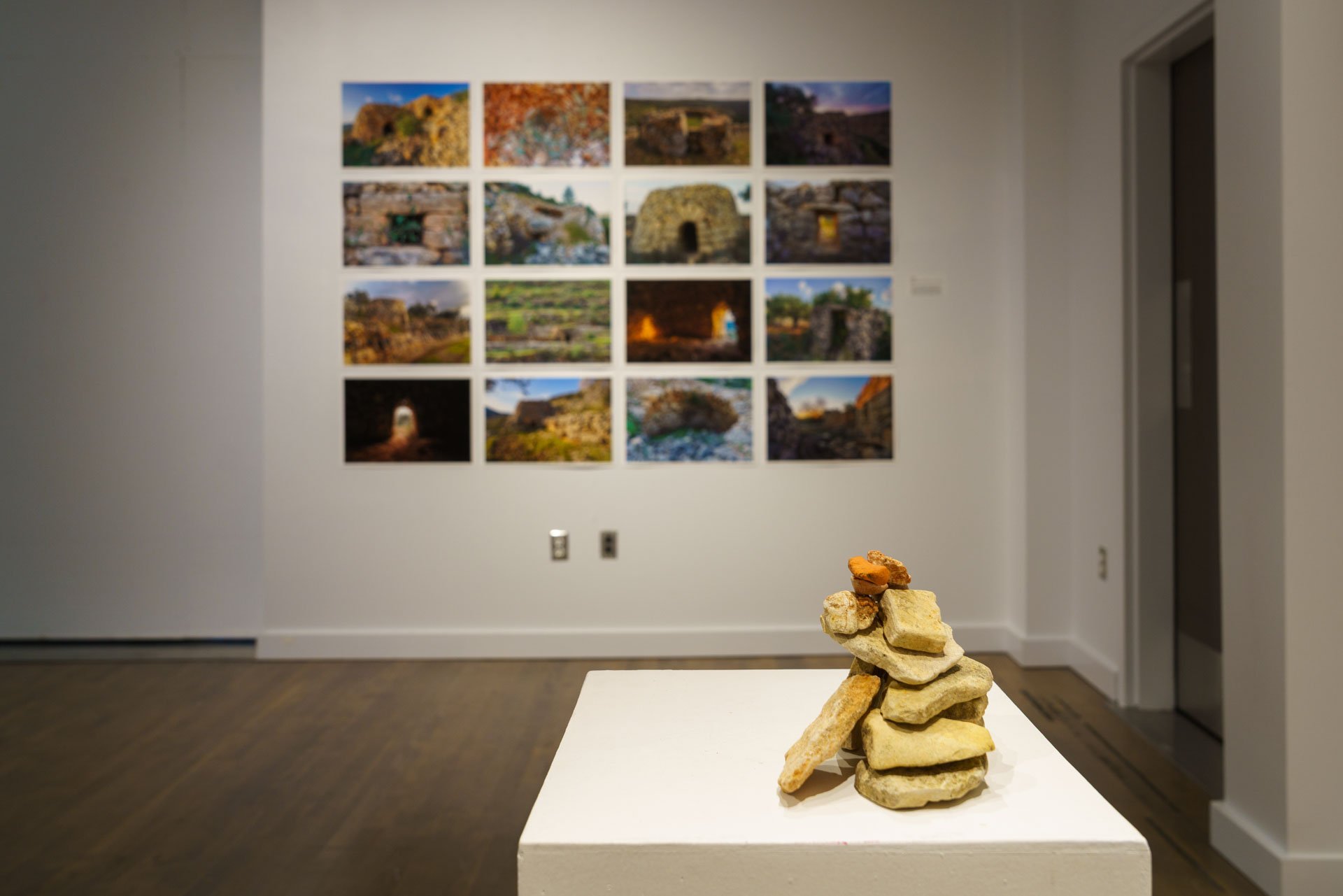Future Memory: The Land Without Its People
Rubenstein Arts Center Gallery,
Duke University, Durham, NC
On view April 22 to May 22, 2025
This exhibition emerges from a deeply personal exploration into what I call future memory, a visual documentation and act of preservation of landscapes I fear may soon disappear. It is rooted in my experiences growing up in the village of Kobar, near Ramallah, Palestine, where the land has shaped our lives, memories, and collective identities.
Historically, our mountains were thriving landscapes, densely covered with olive groves, grapevines, and fig trees. Farming was not merely an economic necessity but also a profound cultural practice that bound families to the land through generations. My grandparents belonged to the last generation who relied entirely on agriculture for their livelihood. Their stories, shared with me as a child, revealed the richness and resilience of this connection.
However, in the last several decades, deliberate occupation strategies have disrupted this intimate relationship. Stories passed down in my family tell of unusual environmental changes, such as sudden surges in gazelle populations and later, the introduction of wild boars, animals not native to our region and whose destructive habits forced villagers away from their farms. These animals, impossible to control or contain, uprooted trees, destroyed crops, and ultimately transformed our vibrant agricultural landscape into one that became unsustainable for local farmers. At the same time, pine trees, also introduced by settlers, altered and obscured the historical landscape, erasing its visual identity and rewriting its ecological past.
Economic pressures further deepened this rupture. Villagers who once lived independently from their land were compelled to seek alternative livelihoods, often becoming cheap laborers for construction in nearby settlements or working in cities far from their ancestral homes. This shift has not only altered economic structures but also disrupted cultural traditions and collective memory. The physical absence of families from their land has left emotional and cultural voids that cannot be easily filled.
